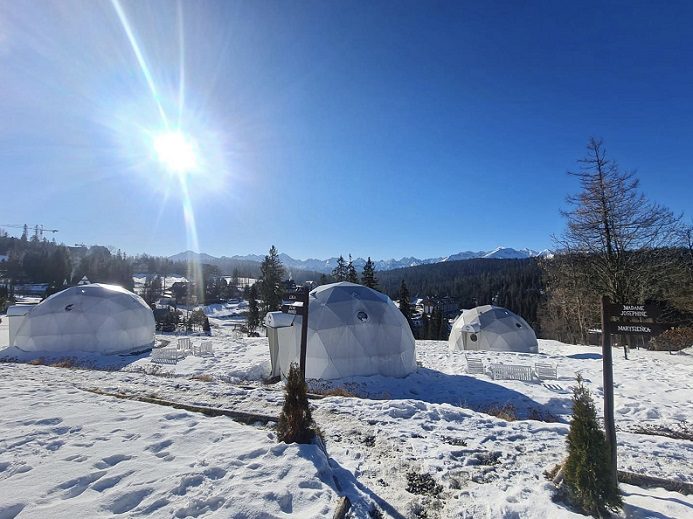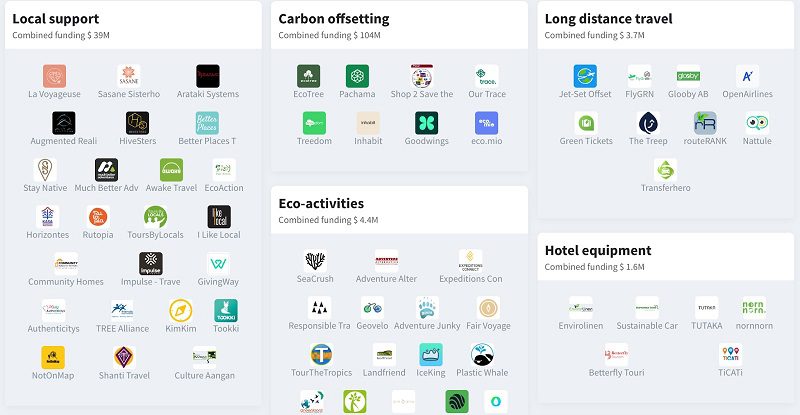 According to theworldcounts.com, 45 tourists arrive at their destinations every second, totalling over 1.4 billion arrivals yearly. The exponential growth of tourism is undeniable, with projections estimating 1.8 billion arrivals by 2030. It negatively impacts the environment and, sometimes, communities.
According to theworldcounts.com, 45 tourists arrive at their destinations every second, totalling over 1.4 billion arrivals yearly. The exponential growth of tourism is undeniable, with projections estimating 1.8 billion arrivals by 2030. It negatively impacts the environment and, sometimes, communities.
Of course, we don’t discourage you from travelling. Exploring is a distinctly human trait. Yet, travelling itself could become a bit more conscious, responsible, and, as a result, sustainable. Let us show how.
Leading Sustainable Travel Trends
From snazzy eco-friendly accommodations that prioritize sustainability and rock-renewable energy sources to wild adventures in responsible wildlife tourism and hiking/camping escapades, travellers are embracing the greener side. They hop on board with shared transportation options like biking, walking, and electric cars. They also enjoy sustainable food and gastronomy, where local and organic sourcing, waste reduction, and plant-based options are the real winners.
A new travelling customer embraces the circular economy with recycling programs and resource reuse while giving single-use plastics the boot with reusable water bottles and biodegradable alternatives.
Startups that make tourism sustainable
The rise of green travel has also paved the way for innovative startups promoting responsible tourism and offering eco-friendly travel solutions to a conscious and eager cohort of explorers. Here are a few examples of sustainable travel startups:
- Fairbnb is a social impact vacation rental platform that aims to provide a suitable alternative to traditional vacation rental platforms. They prioritize community welfare, support local projects, and allocate a portion of their revenue to social initiatives in the destinations where they operate. A similar ecotourism project also echoes Airbnb and is called Ecobnb.
- Goodwings is a hotel booking platform that donates a portion of its revenue to nonprofit organizations working on environmental and social causes. Travellers can book hotels competitively while supporting impactful projects and initiatives worldwide.
- Travalyst, a collaborative initiative by Prince Harry, aims to promote ethical tourism practices by working with travel companies and organizations. They focus on addressing issues like overtourism, carbon emissions, and wildlife conservation to make travel more responsible and beneficial for local communities.
- Kammui is a leading nature-experience platform in Japan that offers sustainable wilderness experiences with highly skilled guides, including Geographic photographers and Olympic medalists. Their mission is to create pathways that lead to health, spirituality, and sustainability by reconnecting people with nature.
- TripZero offers a carbon-offsetting solution for travellers by partnering with hotels. When travellers book their accommodations through TripZero, their stay’s carbon footprint is offset at no additional cost. The company invests in renewable energy projects to balance out the emissions generated from hotel stays.
- Rail Europe (formerly Loco2) is a train booking platform encouraging travellers to choose train travel as a greener alternative to flying. They make it easy for users to book train tickets across Europe, promoting low-carbon transportation options and reducing the environmental impact of travel.
- Pachama is dedicated to removing carbon and restoring nature. Using satellite data and artificial intelligence enables businesses to invest confidently in high-quality carbon credits. Pachama recognizes the importance of restoring soul to address climate change, protecting biodiversity, and supporting local communities.
Investing in sustainable tourism startups
The sustainable travel market is gaining momentum, and the numbers speak for themselves. According to data from dealroom.co, combined funding across various sectors is an impressive $1 billion, signalling a strong emphasis on eco-friendly options. Sustainable mobility ($648M) is a top priority, with food waste management ($110M) and carbon offsetting ($104M) following this lead.
Accommodation booking and local support also receive substantial funding, with $32 million and $39 million, respectively. This suggests a rising demand for sustainable accommodations and a desire to engage with local communities. Travellers are seeking experiences that align with their values and contribute positively to the places they visit.
As we move forward, businesses in the travel sector must embrace sustainability as more than just a buzzword (read about blockchain applications in hospitality). It’s about making tangible changes that positively impact the environment and the local community. Investing in these practices can create a future where travel is enjoyable and responsible.
So, let’s continue to support and celebrate the growth of the sustainable travel market. Together, we can make a difference and ensure our adventures leave a lasting positive legacy.




















